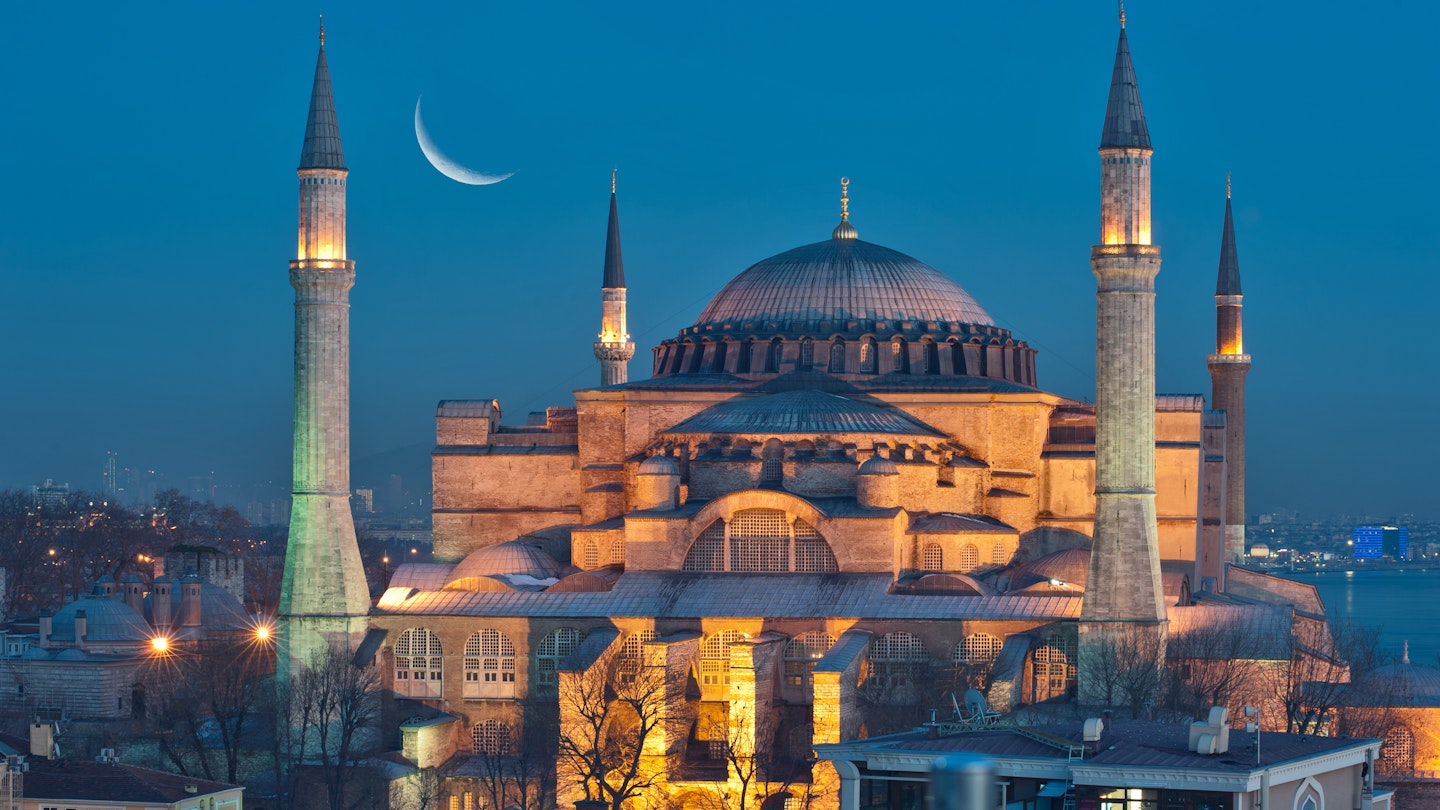Hagia Sophia: A Historic Site in Istanbul
The ancient , often referred to as Hagia Sophia in English and one of ‘s most iconic and enduring monuments, is nearly 15 centuries old. Recently, it has transitioned from a museum back into a mosque following a decree from Turkey’s president, Recep Tayyip Erdoğan. The building was classified as a museum since 1934 after a declaration from Mustafa Kemal Atatürk, the first Turkish president and founder of the Republic of Turkey.
Architectural Significance
As a jewel of Byzantine architecture, Hagia Sophia was originally constructed as a cathedral in 537 CE by Roman Emperor Justinian I. Significantly, it served as a mosque for nearly five centuries after the Ottomans conquered Istanbul, then known as Constantinople, in 1453, thus converting the building into a religious space for Muslims.

Visitor Information
As Aya Sofya will now function as an active place of worship, the future of visitor access remains unclear. Other mosques in Istanbul, such as the located a short walk from Aya Sofya, allow visitors outside of prayer times, provided they are dressed modestly; women are especially required to cover their heads. Modest attire, including head coverings and long robe-like garments, is available for those deemed inappropriately dressed.
UNESCO & Its Implications
Aya Sofya holds UNESCO World Heritage status, and the recent change of status has not been discussed with the organization, potentially jeopardizing its listing. “Hagia Sophia is an architectural masterpiece and a unique testament to interactions between Europe and Asia over the centuries,” stated UNESCO’s director-general Audrey Azoulay. She emphasized that “its status as a museum reflects the universal nature of its heritage and makes it a powerful symbol for dialogue.”
Moreover, the statement criticized the Turkish government’s decision as regrettable due to the lack of dialogue or prior notice. Consequently, UNESCO has urged Turkish authorities to engage in dialogue without delay to prevent any negative effects on the universal value of this extraordinary heritage. The World Heritage Committee will assess the state of conservation during its next session.




